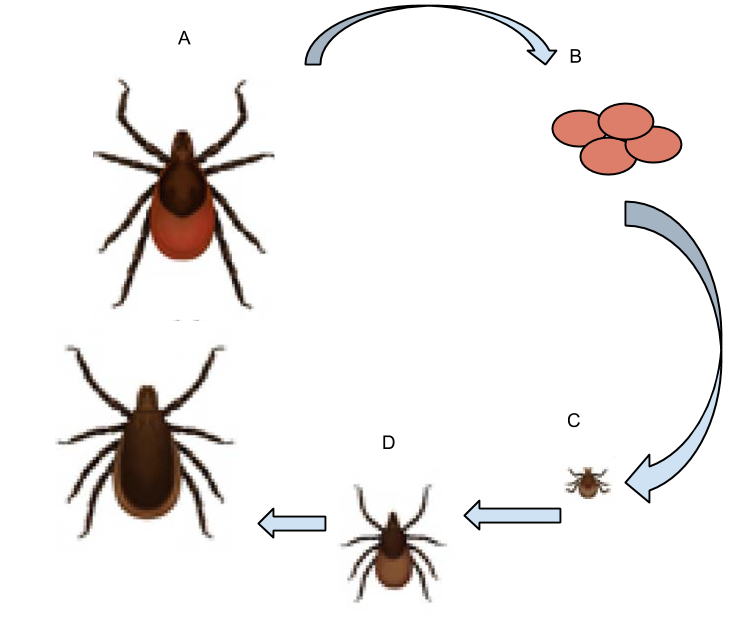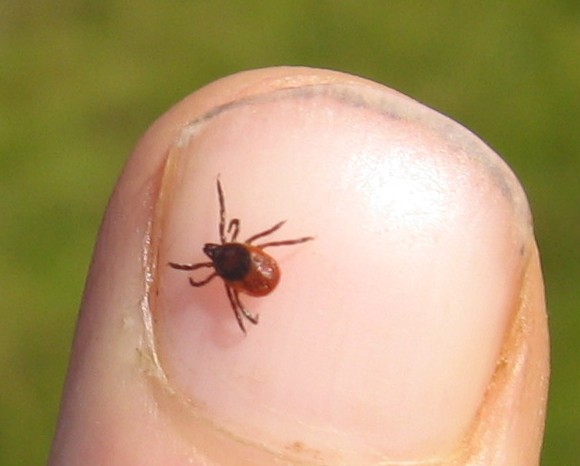Understanding the tick’s lifecycle and survival strategies is essential for effective prevention and control. In this article, we will explore how long ticks live, their lifecycle stages, and the conditions that affect their survival, both indoors and outdoors. Each stage feeds on blood from a host to progress to the next.
Each stage feeds on blood from a host to progress to the next. 
The Lifecycle of a Tick
Ticks have a complex lifecycle consisting of four stages: egg, larva, nymph, and adult. Each stage feeds on blood from a host to progress to the next.
Each stage feeds on blood from a host to progress to the next. - Egg stage: Female ticks usually lay thousands of eggs, usually in a protected environment like leaf litter or soil. These eggs hatch into larvae within a few weeks, although the exact time can depend on the temperature.
- Larval stage: Also known as “seed ticks,” larvae are tiny and have six legs. After hatching, they seek a host for their first blood meal. If they find a host, they will feed for several days before dropping off to molt into the nymph stage. Larvae can survive several months without a blood meal if they fail to find a host quickly.
- Nymph stage: Nymphs are slightly larger than larvae and have eight legs. They also require a blood meal to mature into adults. Nymphs are particularly dangerous to humans because they are small and hard to detect. Without a host, nymphs can survive for several months to a year, depending on the environmental conditions.
- Adult stage: Adult ticks are the most easily recognized and are the stage that most commonly attaches to humans and animals. Female adult ticks need a substantial blood meal to lay eggs and can live for several months, even up to two years, depending on whether they find a host. Male ticks typically die shortly after mating.

How Long Do Ticks Live?
Ticks are incredibly resilient creatures. Depending on the species and environmental conditions, their overall lifespan can range from two months to several years.- How Long Can Ticks Live Without a Host
- How Long Can Ticks Live in a House
Myths and Facts About Tick Lifespan
Myth: Ticks die quickly after falling off a host. Fact: Ticks can live for months to years without feeding again, especially in favorable conditions.Myth: Ticks can’t survive indoors. Fact: While indoor environments are less ideal for ticks, they can still survive for extended periods in humid areas of a home.Myth: All ticks have the same lifespan. Fact: The lifespan of a tick varies significantly depending on the species and environmental factors.Myth: Ticks only live in wooded areas. Fact: Ticks can be found in various environments, including urban settings, where they can survive in shaded, moist areas.Ticks Prevention Tips
- Keep your home dry: Reduce humidity levels to make it less hospitable for ticks.
- Inspect and treat pets: Regularly check pets for ticks and use tick-preventive treatments.
- Maintain your yard: Keep your yard well-maintained, and remove leaf litter and tall grasses where ticks might thrive.





